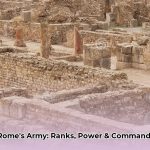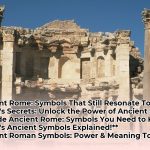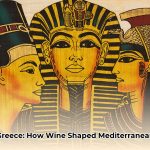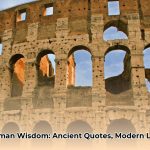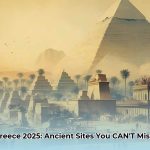Unlock Ancient Wisdom: Best Books on Ancient Greece for Lasting Insights
Ever wondered where many of the enduring stories, profound philosophies, and foundational political concepts we still discuss today originated? A significant portion began in Ancient Greece. However, with centuries of rich history and countless books available, figuring out where to begin your exploration can feel like scaling Mount Olympus itself! This premium guide offers a meticulously curated list of the best books on Ancient Greece, designed to kickstart your journey. For more context, explore this guide to Greek Literature. Consider it your personal compass for navigating everything from epic battles and groundbreaking philosophical insights to captivating myths and the lasting cultural legacy that continues to influence our modern world. We have ensured there is something for every level of interest, whether you are a curious novice or eager to deepen your expertise in ancient Greek history. Prepare to immerse yourself in a civilization that shaped Western thought.
Journey Through the Cradle of Civilization: Essential Reads on Ancient Greece
Are you ready to delve into the vibrant world of Ancient Greece? It is a realm brimming with remarkable art, profound Greek philosophy, innovative political structures, and stories that echo through time. Yet, the sheer volume of available literature can be daunting. Where, precisely, does one commence such a monumental intellectual adventure?
Fear not! This comprehensive article highlights the best books on Ancient Greece, each offering a distinct lens into this fascinating civilization. Imagine this guide as a personalized tour, not through a museum, but through the pages of seminal texts. We will uncover everything from the intricate details of epic conflicts to the nuances of daily life, from the minds of ingenious thinkers to the captivating tapestry of Greek mythology.
Foundational Primary Sources: Voices from Antiquity
To truly understand Ancient Greece, engaging directly with the voices of its own people is indispensable. These primary sources offer unfiltered insights into their worldview, values, and intellectual prowess.
-
The Iliad and The Odyssey by Homer: These foundational epic poems, traditionally attributed to Homer and composed in the 8th century BC, are not merely tales; they are the bedrock of classical Greek education and the very cultural DNA of Western literature. The Iliad plunges into the intense wrath of Achilles during the final weeks of the Trojan War, exploring themes of honor, fate, and the brutal realities of combat. It delves into the psychology of its heroes and the intervention of the gods, providing a profound meditation on human nature under extreme duress. The Odyssey narrates the perilous ten-year journey of Odysseus, King of Ithaca, as he strives to return home after the fall of Troy. It is a masterful exploration of perseverance, cunning, the allure of temptation, and the enduring human desire for home and family. Both works offer unparalleled glimpses into early ancient Greek society, religious beliefs, and the heroic ideal, shaping storytelling and poetic tradition for millennia.
- Reader Benefit: Gain a foundational understanding of the core cultural values, narrative traditions, and heroic archetypes that permeated ancient Greek thought and continue to influence Western civilization.
-
The Histories by Herodotus: Written circa 440 BC, Herodotus of Halicarnassus is widely recognized as the “Father of History.” His monumental work offers a sweeping, panoramic account of the Greco-Persian Wars, detailing the origins and progression of the conflict between the Persian Empire and the Greek city-states. Herodotus employs a unique investigative methodology, interviewing eyewitnesses, collecting oral traditions, and incorporating geographical and ethnographic descriptions. While his narrative occasionally includes wondrous tales or unverified accounts, his dedication to explaining the causes of events marks a pivotal shift toward systematic historical inquiry. The book provides invaluable insights into the political landscapes, military strategies, and diverse cultures of both Greeks and “barbarians,” making it essential for understanding the classical Greece era.
- Reader Benefit: Acquire a broad historical panorama of the ancient Mediterranean world and a foundational grasp of critical geopolitical events, alongside an appreciation for early historical methodology.
-
The History of the Peloponnesian War by Thucydides: In stark contrast to Herodotus, Thucydides, an Athenian general and historian, presents an intensely analytical and often chilling account of the protracted conflict (431–404 BC) between Athens and Sparta. His work is renowned for its unflinching political realism, its focus on cause-and-effect, and its psychological insights into human behavior during wartime. Thucydides meticulously details military strategies, political decisions, and moral dilemmas, often through compelling speeches attributed to key figures like Pericles. His objective, dispassionate tone and commitment to verifiable evidence earned him recognition as history’s first truly scientific historian. This text remains a timeless study of power politics, international relations, and the tragic consequences of imperial ambition, directly influencing thinkers from Machiavelli to modern strategists.
- Reader Benefit: Cultivate a nuanced understanding of effective leadership strategies during periods of profound crisis, the complex dynamics of power, and the enduring relevance of ancient conflicts to contemporary geopolitical challenges.
-
The Republic by Plato: This seminal work, composed around 380 BC, is perhaps the most influential text in Greek philosophy and political theory. Presented as a Socratic dialogue, it explores the fundamental question of justice, asking what constitutes a just individual and, by extension, a just society. Plato, through the voice of his mentor Socrates, constructs an ideal state, “Kallipolis,” famously ruled by philosopher-kings. The dialogue delves into profound concepts such as the Theory of Forms, the allegory of the cave, the nature of education, and the immortality of the soul. The Republic is a rigorous and challenging read that continues to shape discussions in ethics, metaphysics, epistemology, and political philosophy.
- Reader Benefit: Challenges your perspective to contemplate ideal societal structures, introduces fundamental concepts in political philosophy and the pursuit of justice, and refines your capacity for abstract thought and ethical reasoning.
-
Nicomachean Ethics and Politics by Aristotle: As Plato’s most famous student, Aristotle (384–322 BC) developed a more empirical and systematic approach to philosophy. His Nicomachean Ethics is a foundational treatise on virtue ethics, exploring the nature of human flourishing (eudaimonia, or happiness) and how it is achieved through the cultivation of moral virtues. Aristotle argues for the “golden mean,” a balance between extremes, and emphasizes the role of practical wisdom in ethical decision-making. His Politics lays the groundwork for political science, analyzing various forms of government (monarchy, aristocracy, polity, and their corruptions) and their suitability for different societies. Aristotle believed that politics is the “master science,” aiming to create a society where citizens can live the good life.
- Reader Benefit: Gain invaluable insights into ethical reasoning, the pursuit of happiness, and the fundamental principles of political organization, directly influencing centuries of Western thought on governance and morality.
Masterworks of Ancient Greek Drama: Tragedy and Comedy
Ancient Greek theatre was not merely entertainment; it was a powerful medium for exploring profound societal questions, human nature, and the relationship between mortals and the divine.
-
Plays by Aeschylus, Sophocles, and Euripides: These three tragedians defined the genre.
- Aeschylus (c. 525/524 – c. 456/455 BC): Often called the “Father of Tragedy,” Aeschylus introduced the second actor, allowing for true dialogue. His masterpiece, The Oresteia, is a trilogy (comprising Agamemnon, The Libation Bearers, and The Eumenides) that explores the transition from a primitive cycle of vengeance to a system of divine justice and law, culminating in the establishment of the Athenian judicial system.
- Sophocles (c. 496 – 406/405 BC): Sophocles refined theatrical structure by introducing a third actor and developing more complex characterization. His most famous work, the Oedipus Cycle (Oedipus Rex, Oedipus at Colonus, and Antigone), delves into themes of fate, free will, truth, and the consequences of human pride. Oedipus Rex is a masterclass in dramatic irony and psychological depth.
- Euripides (c. 480 – 406 BC): Euripides pushed boundaries, often challenging traditional myths and exploring the psychological states of his characters with unprecedented realism and cynicism. Plays like Medea confront the audience with complex moral dilemmas and the destructive power of human emotion, making them strikingly modern in their psychological insights.
- Reader Benefit: Experience the emotive power of ancient storytelling, understand the deep philosophical and ethical questions that permeated ancient Greek thought, and appreciate the origins of dramatic structure and character development that shaped global theatre.
-
Plays by Aristophanes (c. 446 – c. 386 BC): The foremost comic playwright of ancient Athens, Aristophanes offers a crucial counterpoint to the tragedians. His surviving eleven plays, such as Lysistrata, The Clouds, and The Frogs, are prime examples of Old Comedy, characterized by political satire, social commentary, slapstick humor, and fantastical plots. Aristophanes fearlessly lampooned prominent figures, institutions, and contemporary ideas, providing invaluable insights into Athenian politics, education, philosophy (especially Socrates in The Clouds), and daily life.
- Reader Benefit: Gain a unique, often hilarious, perspective on the social and political landscape of classical Athens, understanding the role of satire in public discourse and the lighter, yet still insightful, side of ancient Greek artistic expression.
Comprehensive Secondary Sources: Expert Interpretations and Deep Dives
While primary sources are vital, engaging with scholarly interpretations and comprehensive overviews provides essential context and deeper understanding.
-
Ancient Greece: A Political, Social, and Cultural History by Sarah B. Pomeroy, Stanley M. Burstein, Walter Donlan, Jennifer Tolbert Roberts, David Tandy, and Georgia Tsouvala: This authoritative work, collaboratively written by six leading scholars, offers a remarkably comprehensive and nuanced exploration of ancient Greek civilization from the Bronze Age through the Hellenistic Era. Unlike many histories that focus solely on political and military events, this book meticulously integrates social, economic, and cultural dimensions, including often-overlooked topics like family life, the experiences of women, homosexuality, literacy, and the pervasive institution of slavery. Its rich detail, supported by excerpts from primary documents and vivid illustrations, paints a holistic picture of life in ancient society, making it an invaluable resource for both students and enthusiasts.
- Reader Benefit: Develop a well-rounded and multifaceted understanding of ancient Greek civilization, extending beyond typical military and political narratives to encompass the intricate social realities and daily lives of its inhabitants.
-
The Oxford History of Ancient Greece and Rome (Edited by John Boardman, Jasper Griffin, and Oswyn Murray): While encompassing Rome, the sections on Ancient Greece offer unparalleled depth from leading experts in various fields of classical studies. This multi-authored volume presents a detailed and authoritative account of Greek history, art, philosophy, and society, reflecting the latest scholarly consensus. Its strength lies in its comprehensive coverage and its ability to synthesize vast amounts of information into a readable and engaging narrative, offering diverse perspectives on major periods and key figures.
- Reader Benefit: Access a highly authoritative and scholarly yet accessible overview of Greek antiquity, benefiting from the collective expertise of top classicists and integrating various aspects of Hellenic culture.
-
Ancient Greeks at War: Warfare in the Classical World by Simon Elliott and Battles and Battlefields of Ancient Greece by Dr. C. Jacob Butera and Dr. Sean Sears: For military history enthusiasts, these books are indispensable. Simon Elliott’s Ancient Greeks at War provides a thorough examination of warfare from the Bronze Age through the Hellenistic period, detailing the evolution of Greek military systems, battle tactics, and crucial campaigns like the Persian and Peloponnesian Wars. It explores the equipment, training, and strategic mindset of the Greek armies, including the iconic hoplite warfare** and the formidable phalanx formation. Butera
- Unearth ancient rome achievements: Engineering feats & legal legacies, examined - August 13, 2025
- Unlock ancient rome army ranks: Power, impact & legion command - August 13, 2025
- Conquer Your Exam: Ancient Greece Quiz Ace It Now! - August 13, 2025
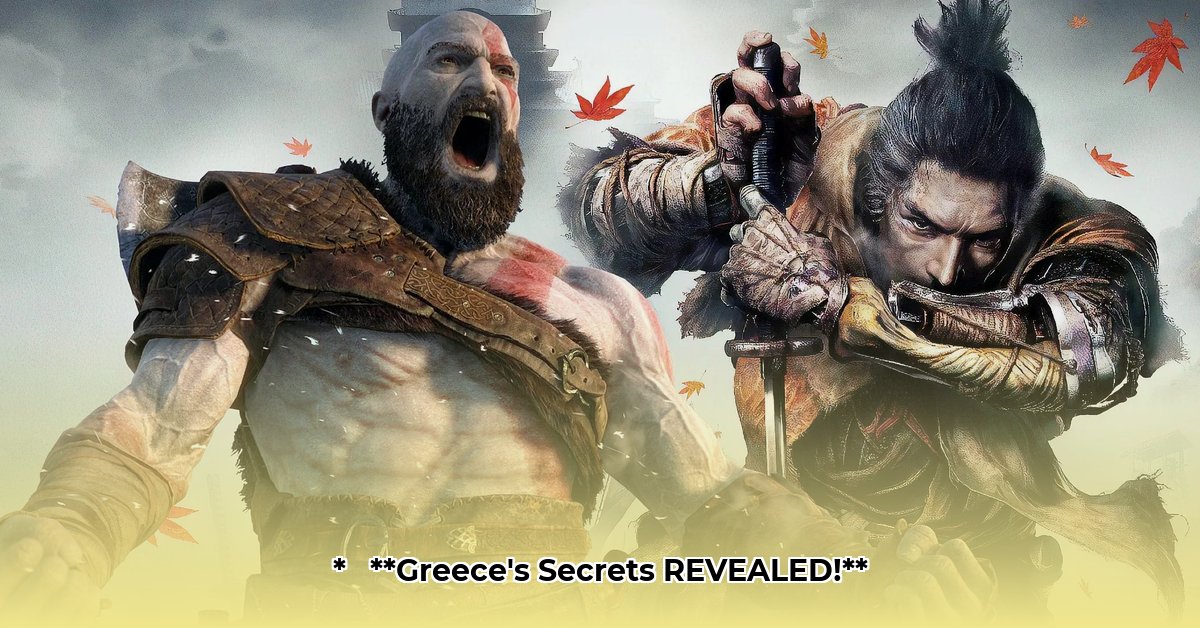

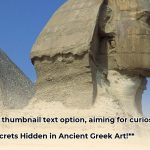


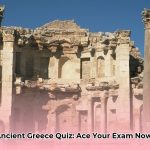
![Mastering Ancient Greek: Ancient Greece Dictionary Guide & Lexicon Insights for 2025 [LSJ, Brill Reference] ancient_greece_dictionary_edited](https://www.lolaapp.com/wp-content/uploads/2025/08/ancient_greece_dictionary_edited-150x150.jpg)

